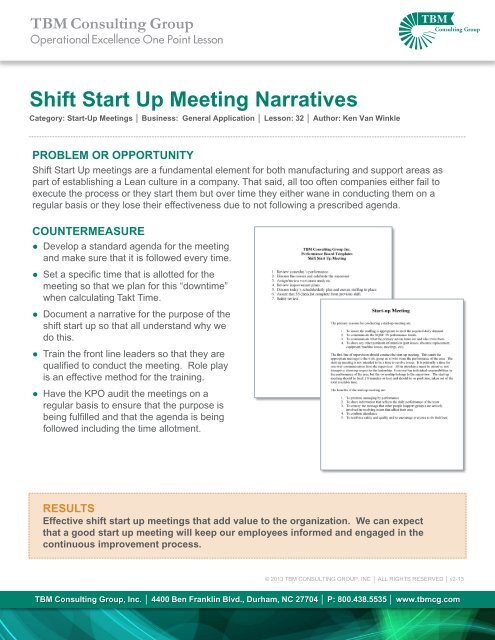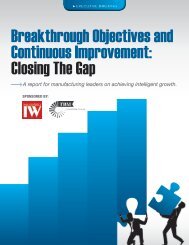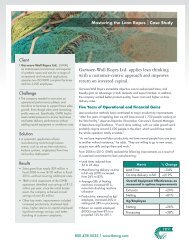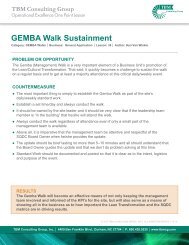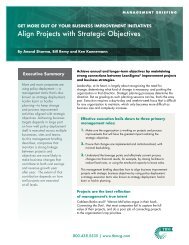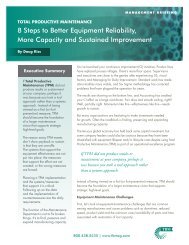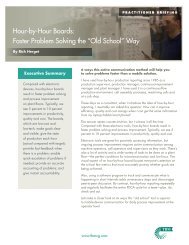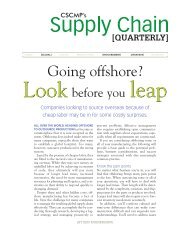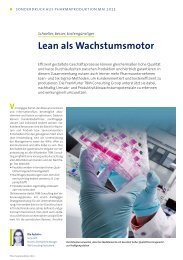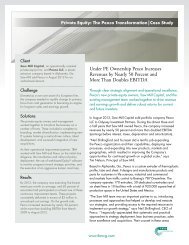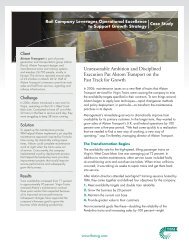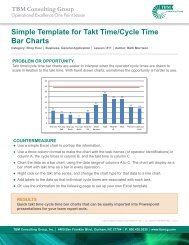Shift Start Up Meeting Narratives - TBM Consulting Group
Shift Start Up Meeting Narratives - TBM Consulting Group
Shift Start Up Meeting Narratives - TBM Consulting Group
Create successful ePaper yourself
Turn your PDF publications into a flip-book with our unique Google optimized e-Paper software.
<strong>TBM</strong> <strong>Consulting</strong> <strong>Group</strong><br />
Operational Excellence One Point Lesson<br />
<strong>Shift</strong> <strong>Start</strong> <strong>Up</strong> <strong>Meeting</strong> <strong>Narratives</strong><br />
Category: <strong>Start</strong>-<strong>Up</strong> <strong>Meeting</strong>s │ Business: General Application │ Lesson: 32 │ Author: Ken Van Winkle<br />
PROBLEM OR OPPORTUNITY<br />
<strong>Shift</strong> <strong>Start</strong> <strong>Up</strong> meetings are a fundamental element for both manufacturing and support areas as<br />
part of establishing a Lean culture in a company. That said, all too often companies either fail to<br />
execute the process or they start them but over time they either wane in conducting them on a<br />
regular basis or they lose their effectiveness due to not following a prescribed agenda.<br />
COUNTERMEASURE<br />
● Develop a standard agenda for the meeting<br />
and make sure that it is followed every time.<br />
● Set a specific time that is allotted for the<br />
meeting so that we plan for this “downtime”<br />
when calculating Takt Time.<br />
● Document a narrative for the purpose of the<br />
shift start up so that all understand why we<br />
do this.<br />
● Train the front line leaders so that they are<br />
qualified to conduct the meeting. Role play<br />
is an effective method for the training.<br />
● Have the KPO audit the meetings on a<br />
regular basis to ensure that the purpose is<br />
being fulfilled and that the agenda is being<br />
followed including the time allotment.<br />
RESULTS<br />
Effective shift start up meetings that add value to the organization. We can expect<br />
that a good start up meeting will keep our employees informed and engaged in the<br />
continuous improvement process.<br />
© 2013 <strong>TBM</strong> CONSULTING GROUP, INC │ ALL RIGHTS RESERVED │ v2-13<br />
<strong>TBM</strong> <strong>Consulting</strong> <strong>Group</strong>, Inc. │ 4400 Ben Franklin Blvd., Durham, NC 27704 │ P: 800.438.5535 │ www.tbmcg.com
<strong>Start</strong>-up <strong>Meeting</strong><br />
The primary reasons for conducting a start-up meeting are:<br />
1. To insure the staffing is appropriate to meet the required daily demand.<br />
2. To communicate the SQDC 5S performance trends.<br />
3. To communicate what the primary action items are and who owns them.<br />
4. To share any other pertinent information (part issues, absentee replacement,<br />
equipment/machine issues, meetings, etc).<br />
The first line of supervision should conduct the start-up meeting. This sends the<br />
appropriate message to the work group as to who owns the performance of the area. The<br />
start-up meeting is not intended to be a time to resolve issues. It is primarily a time for<br />
one-way communication from the supervisor. All in attendance must be attentive, not<br />
disruptive, showing respect to the leadership. Everyone has individual responsibilities in<br />
the performance of the area, but the ownership belongs to the supervisor. The start-up<br />
meeting should be brief, (10 minutes or less) and should be on paid time, taken out of the<br />
total available time.<br />
The benefits of the start-up meeting are:<br />
1. To promote managing by performance<br />
2. To share information that reflects the daily performance of the team<br />
3. To convey the message that other people (support groups) are actively<br />
involved in resolving issues that affect their area<br />
4. To confirm attendance<br />
5. To reinforce safety and quality and to encourage everyone to do their best
<strong>TBM</strong> <strong>Consulting</strong> <strong>Group</strong> Inc.<br />
Performance Board Templates<br />
<strong>Shift</strong> <strong>Start</strong> <strong>Up</strong> <strong>Meeting</strong><br />
1. Review yesterday’s performance.<br />
2. Discuss the misses and celebrate the successes.<br />
3. Assign/review root cause analysis.<br />
4. Review improvement plans.<br />
5. Discuss today’s schedule/daily plan and ensure staffing in place.<br />
6. Assure that 5S checklist complete from previous shift.<br />
7. Safety review.


